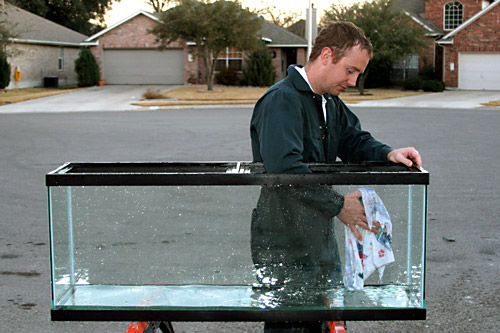Over recent years, aquarium sales up and down the UK have exploded like never before. Despite being a well-known nation of dog and cat lovers, there’s something about the glorious tranquillity of an aquarium that seems to have got its claws into Great Britain and led to more fish tanks of all shapes and sizes being set up than ever before. What’s more, with the most cutting-edge equipment now readily available for the lowest prices the market has ever seen, it’s also never been easier or more affordable to set up and maintain an aquarium of outstanding quality.
Of course, we still haven’t reached a period in which fish or their respective tanks are able to look after 100% of their own needs across the board, so there’s still a fair bit of work involved on the part of the owner. Setting up and keeping an aquarium represents a responsibility that should never be underestimated as you are, above all else, looking after the health and best interests of the animals under your care.
As such, the best approach is always a proactive approach which according to Reef-Perfect.co.uk means fully understanding the daily and weekly maintenance jobs you have a duty to perform and keep an eye on.

Every Day
To ignore your tank for even a single day is to leave the door wide open for all manner of problems to begin manifesting. It’s not as if you need to carefully study and analyse every bit of your tank hour after hour, but at the same time you must be sure to keep tabs on a few everyday essentials.
For example:
- Excess Food – Any food that hasn’t been eaten by your fish within a minute or so should be removed immediately. The reason being that there’s really nothing quite like decomposing fish food when it comes to polluting your water and eventually killing your fish.
- Temperature Checks – No matter what kind of fish you are keeping, there will be a certain range of temperatures between which they are able to thrive at their strongest. As such, it’s your responsibility to check the temperature of the water daily and make adjustments where necessary.
- Filtration – The moment a filter either stops doing its job properly or stops working entirely, you have yourself a window of maybe a few hours to replace it and save the lives of your fish. As such, it’s much safer to keep an eye on your filtration system every day in order to note, anticipate and compensate for serious problems before they occur.
It also goes without saying that you should be on the lookout for any obvious water quality problems day in and day out, but that’s generally a bit of a no-brainer.
Every Week
You can make life so much easier for yourself by taking care of a few minor essentials every week rather than waiting until the whole tank needs an overhaul at the end of the month.
For example:
- Living Plant Checks – If you are using living plants in your tank…which you should be…it’s important to keep a watch over them for signs of rotting, decaying and generally falling apart. As soon as the plants have seen better days, it’s time to get rid of them.
- Ornaments – The decorative bits and pieces in your tank will in many instances gather algae and general nastiness like there’s no tomorrow. As such, it’s a good idea to give them a weekly wipe.
- Glass – Cleaning the glass of a fish tank can be a nightmare if you allow things to get out of hand, so it’s a really good idea to give the inside and outside alike a bit of time and attention on a weekly basis. There are plenty of tools and gadgets on the market that can make doing so a piece of cake.
- Water Change – Last up, save yourself the nightmare that is changing all of the water in your fish tank by replacing about 25% of it on a weekly basis. Not only is this approach a thousand times simpler, but it’s also much healthier for your fish.
On the whole, the vast majority of what goes into responsible aquarium care is little more than common sense. Things will only ever get out of hand if you allow them to get out of hand, so be sure to do yourself and your fish a favour by being proactive and taking a preventative approach.










Comments are closed.